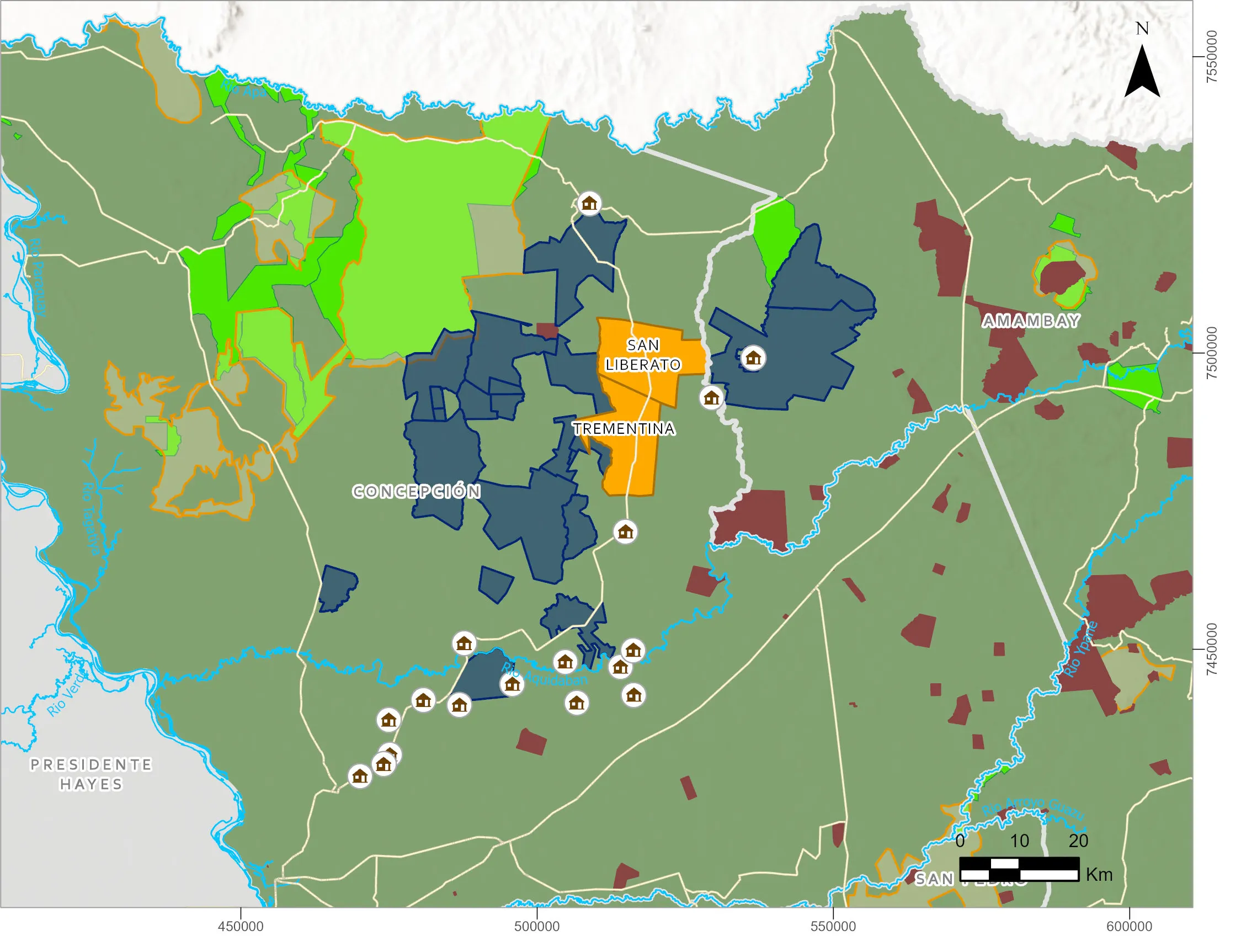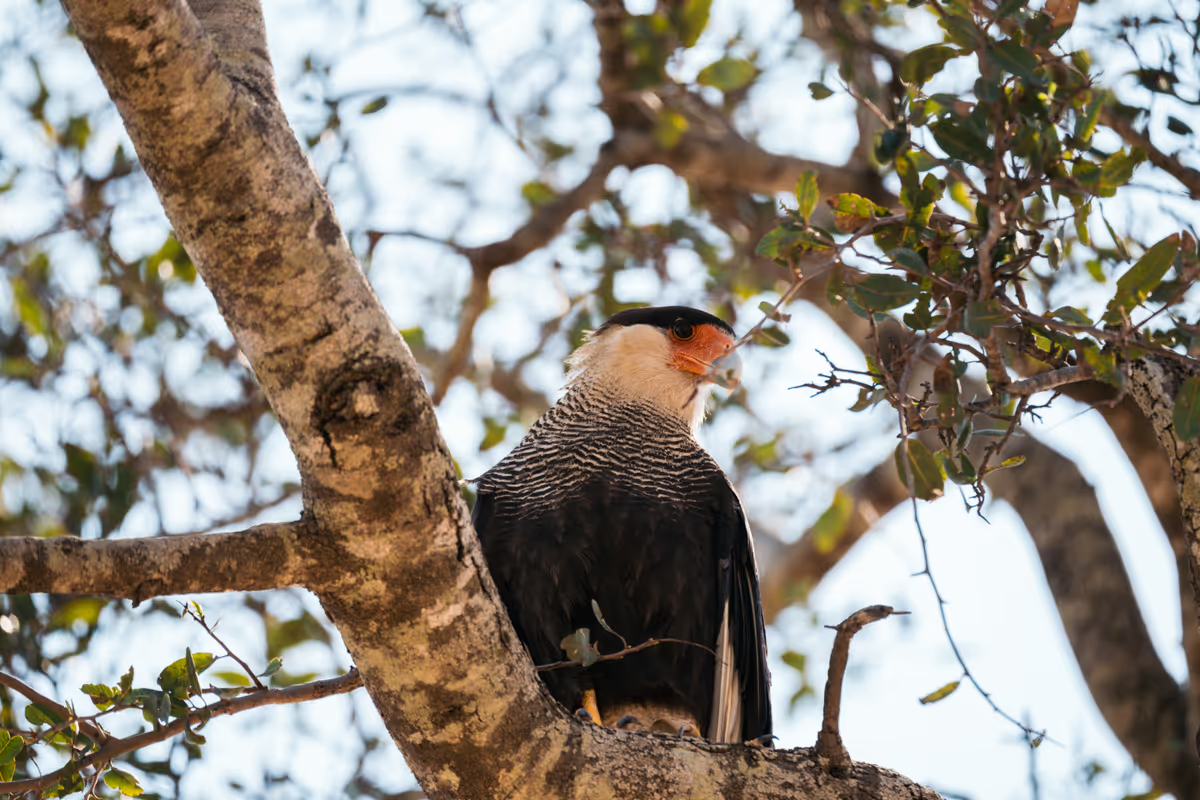Carbon Project
Carbon Project
The Paracel ARR Carbon Forest Project is a sustainable development initiative that seeks to address climate change through carbon capture, while promoting the restoration of degraded ecosystems and socio-economic benefit in the Eastern region of Paraguay.
This project meets the highest international validation and verification standards, contributing to global climate objectives and local development.

Clustered Project in the Northern Region of Paraguay
The expansion area of the Clustered Project in the Northern Eastern region of Paraguay covers the departments of Concepción, Amambay, San Pedro and Canindeyú. In its first project instance (PAI 1), it includes the Trementina and San Liberato estates (35,764 ha) and plans to expand to 1,000,000 hectares, divided between eucalyptus plantations, conservation and restoration areas.
Areas dedicated to the conservation and restoration of forests and savannas protect and improve the habitat of more than 22 species of flora and 36 species of fauna that are in the category of threat at the national level.



%20edit.png)


Objectives of the Project
1
Carbon Capture and Climate Mitigation:
2
Restoration of Native Ecosystems:
3
Sustainable Pulp Production:
4
Social Impact:
Main Activities
- The project uses eucalyptus cultivation not only to capture carbon, but also to produce wood pulp for global markets. This ensures a sustainable value chain that balances production and conservation.
- Regular environmental impact assessments are carried out to ensure that forestry practices are effective and sustainable.
- Indicators such as soil quality, biodiversity and carbon capture are constantly being measured.
- Massive planting of trees, including native species, to restore degraded ecosystems.
- Creation of biological corridors that connect fragmented habitats, increasing biodiversity.
- Active partnership with local communities to include them in the decision-making process.
- Environmental education and job training programs as fundamental pillars.
Departments of Concepción, Amambay, San Pedro and Canindeyú, in the Eastern region of Paraguay.
From December 12, 2019 to December 11, 2069 (50 years of accreditation).
Land Degradation and Greenhouse Gas Emissions (GEOGIS).

Environmental Impact
Future Perspectives
The Paracel ARR Carbon Forest Project is presented as a replicable model of sustainability that balances carbon capture, environmental restoration and social development.
The success in the Eastern region of Paraguay demonstrates its potential to be applied in other contexts, positioning itself as a global reference in climate initiatives.



In addition, the project will contribute to the following global sustainable development objectives through the programs established in each component.
Learn about our programs





.webp)